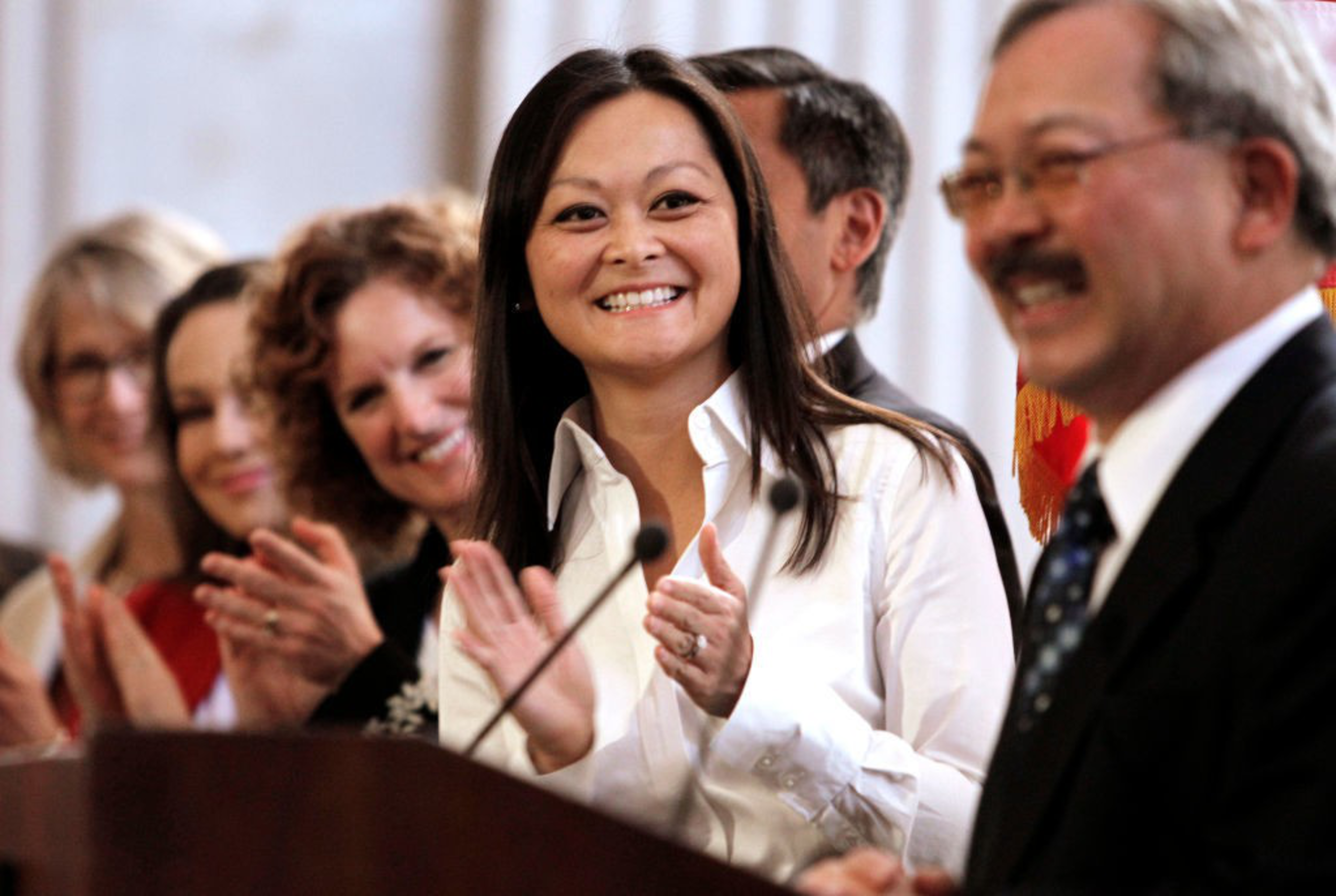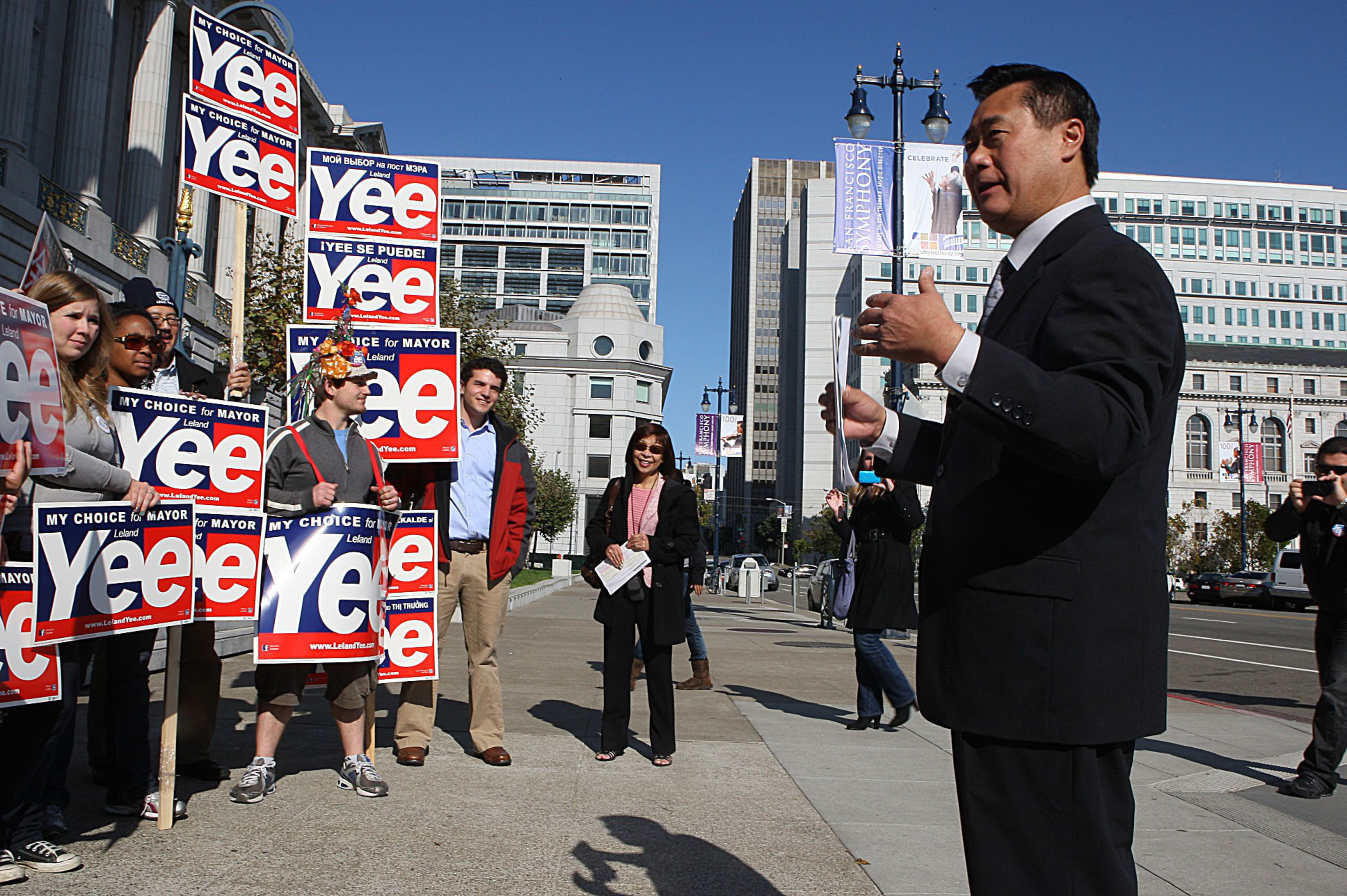Terry Hong had long been passionate about Chinese American representation in San Francisco’s politics—until recent years.
“I was always instructed, ‘Hey, vote for the Asian guy,’” said Hong, who’s lived in the city’s Sunset District for over 20 years.
But now, racial and ethnic identity in politics don’t matter as much to him anymore.
Since San Francisco brought back district supervisor elections in 2000, Hong’s home district, an Asian-majority, quiet neighborhood on the city’s west side, has elected six different supervisors—all Chinese Americans.
However, this November, Hong thinks a non-Chinese candidate stands a chance. On a warm Sunday morning in October, he was campaigning for Joel Engardio, a white challenger aiming to oust incumbent Chinese American Supervisor Gordon Mar.
A Chinese Seat
Before San Francisco returned to district elections for supervisors in 2000, voters chose their local legislative leaders in citywide elections.
One of the major arguments for district elections is to ensure minority representation on the Board of Supervisors. And that benefit has been fully realized in District 4, which covers the Sunset and Parkside from 19th Avenue all the way to the beach.
Since 2000, Chinese American candidates have claimed all D4 victories, with Leland Yee, Fiona Ma, Ed Jew, Carmen Chu, Katy Tang and now Supervisor Mar representing the district. The dominance has led to D4 being known as the city’s “Chinese seat.”
“That’s been important and positive for the Board of Supervisors to have that diversity and representation,” Mar said. “It has been reflected in our district leadership for the last 22 years.”
Though D4 has seen a steady through line of Asian American representation, the five former Sunset supervisors have shown sharp differences in their political trajectories.

The three women are advancing their political careers in the city or at the state level. Ma is now California state treasurer and a rumored gubernatorial contender. Chu, after serving as the San Francisco assessor-recorder, was appointed by Mayor London Breed to be city administrator, the highest-ranking non-elected official at City Hall. Tang, meanwhile, was appointed to head the city’s Office of Small Business.
The two men, Yee and Jew, were both convicted of corruption charges and jailed for years.

Being asked about his political ambition for higher offices, Mar simply denied it and said he was focusing on reelection.
“Serving as District 4 supervisor has been the honor of my life,” he said.
Dynamic Changes
As one of the least dense areas in the city with one of the highest rates of homeownership, the politics in Sunset has long leaned moderate. But in 2018, Mar—a more progressive candidate—won the election over Jessica Ho, a moderate backed by Breed and previous supervisors. That turned the Sunset seat into a progressive voice on the board.
But San Francisco’s political wind is believed to be shifting to the center this year, and Sunset’s dynamic seems to be changing, too.
Two high-profile recalls this year targeting the San Francisco Unified School District Board of Education and District Attorney’s Office garnered huge support in the Sunset, though Mar opposed both. And after the chaotic redistricting process, D4 has expanded to include Lakeshore and Merced Manor, one of the city’s most conservative enclaves, into its voter base.
Engardio, whose home was just redistricted into D4, has risen in prominence as an outspoken proponent of the 2022 recalls, winning a considerable amount of supporters from his stance on both campaigns. For him, it’s not only hard to beat an elected supervisor, but also to break the tradition of the district’s history of electing Chinese representatives.

In an interview with The Standard, Engardio expressed confidence that his position on the recalls earlier this year will override D4’s long-standing Chinese American identity politics.
“When it comes to those issues, people will want to vote for someone who is on their side,” Engardio said. “I was on their side.”
Parents and kids were suffering, he said, “when the schools [were] being renamed or not reopened,” and Asian elders and families were fearful “when the crime was high.” He linked those issues to the success of both recalls, while calling Mar out of touch to the community’s concerns.
This is not the first time Engardio is running for supervisor. He appeared on the ballot three times before in another district, each time using an authentic Chinese name, 殷嘉立 (opens in new tab), which was created by his Taiwanese immigrant husband.
But for Hong, Engardio’s “Chineseness” is enough, based on his political positions on the two recalls.
“I would say Joel Engardio is actually a little more Chinese than the incumbent,” Hong told The Standard. “I feel that San Francisco has been drifting towards the liberal extremes. So I don’t like that.”
Recall Supporters With Mar
In Chinese-language ads (opens in new tab), Engardio and his supporters have been attacking Mar for his opposition to the recalls. But Mar defended his track record.
“Public safety and supporting our schools are our top priority issues,” Mar said. “I’ve been very much focused on those issues in real solutions.”
As supervisor, Mar spearheaded legislation on community policing, increasing language access for crime victims, installing more surveillance cameras for residents and getting more funding for public schools.

And for some recall enthusiasts, they still support Mar.
Anny Zhang—a Chinese immigrant and Sunset resident who backed both of the recalls—still supports Mar because she believes his contributions to the Sunset outweigh those past political disagreements.
“He’s a leader with real action,” Zhang said. “Mar [has been] in the community for decades.”
